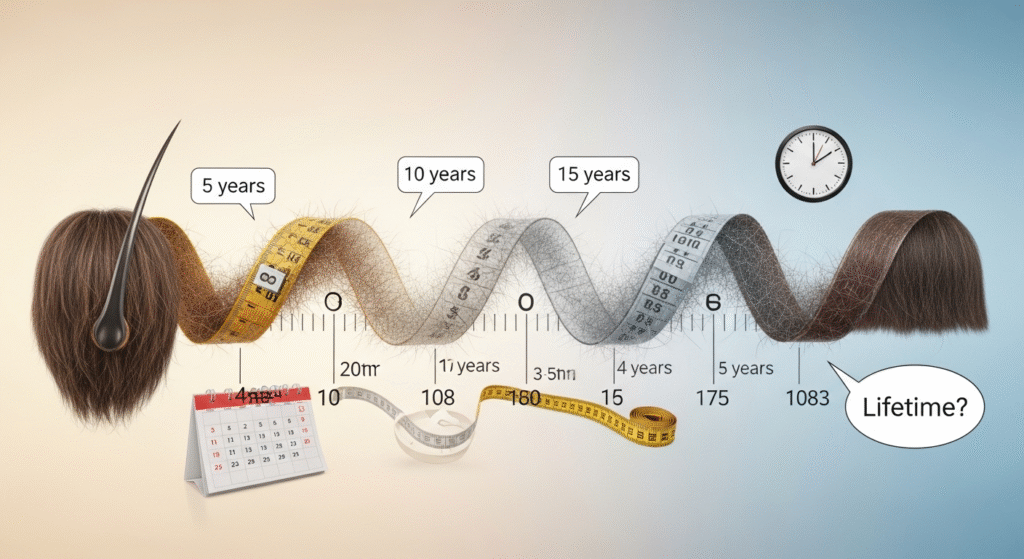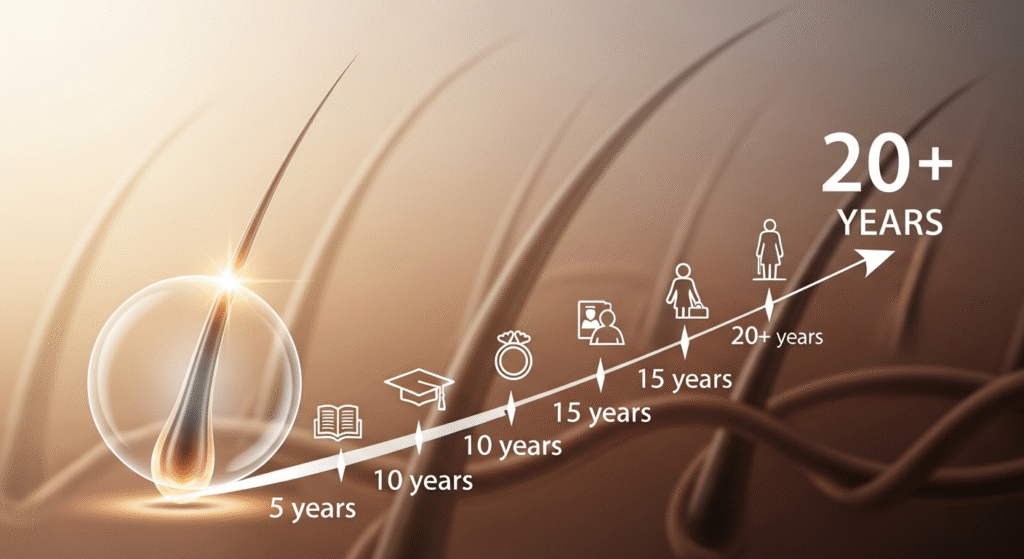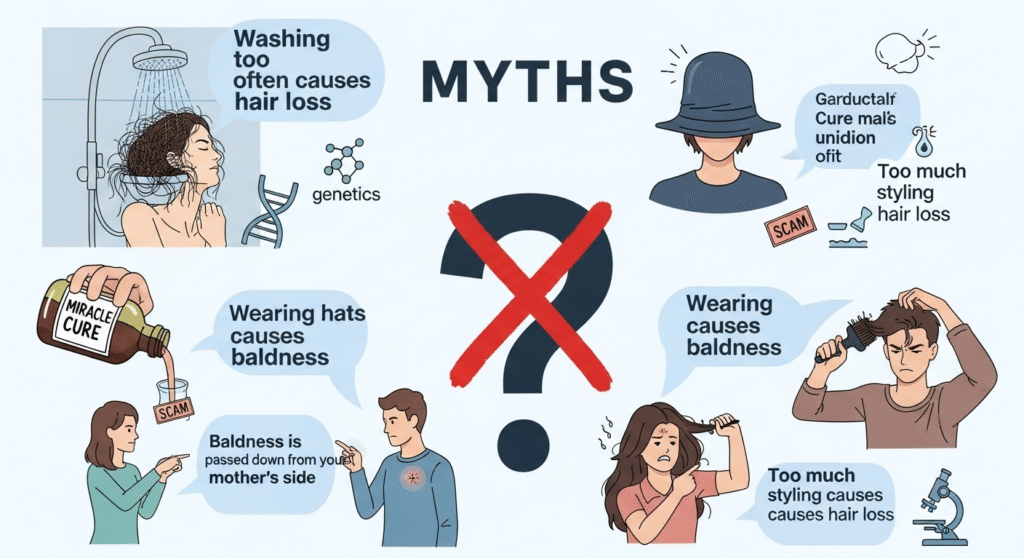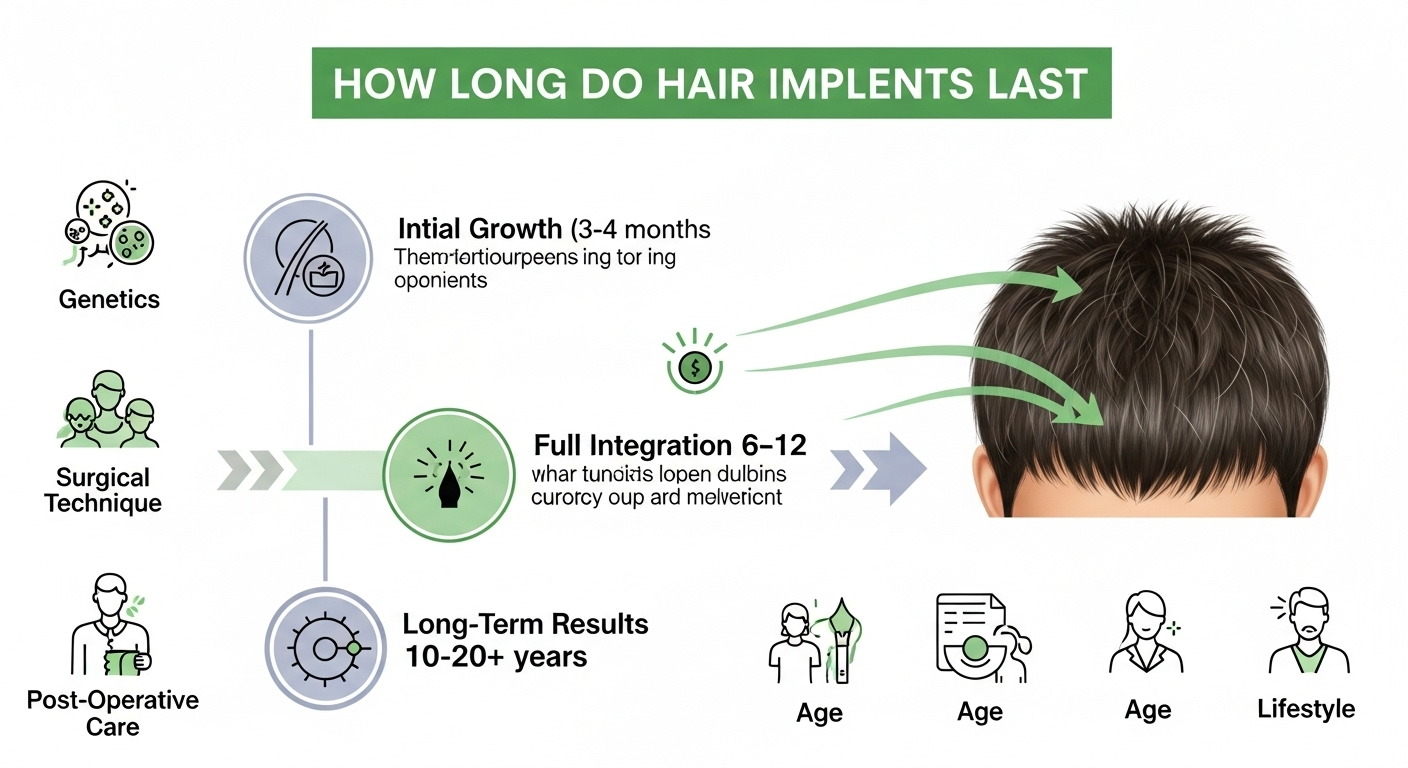When considering a hair transplant, one of the most important questions that come up is how long do hair implants last? Understanding the longevity of hair implants can help you set realistic expectations and guide you on how to care for your hair post-transplant. In this article, we’ll explore the lifespan of hair implants, the …
When considering a hair transplant, one of the most important questions that come up is how long do hair implants last? Understanding the longevity of hair implants can help you set realistic expectations and guide you on how to care for your hair post-transplant.
In this article, we’ll explore the lifespan of hair implants, the factors that influence their durability, and tips for ensuring long-term success. By the end of this post, you’ll be fully informed on what to expect and how to keep your new hair looking great for years to come.

What Are Hair Implants?
Before diving into how long hair implants last, it’s essential to understand what hair implants are and how they work.
Understanding Hair Transplantation
Hair implants, or hair transplants, involve taking hair follicles from one part of the body (usually the back of the head) and transplanting them to areas where hair is thinning or balding. This process helps restore a fuller, thicker appearance.
There are two main types of hair transplant procedures:
- FUE (Follicular Unit Extraction): This technique involves extracting individual hair follicles and transplanting them. It leaves minimal scarring and has a faster recovery time.
- FUT (Follicular Unit Transplantation): In this method, a strip of scalp is removed and divided into smaller grafts for transplantation. It is ideal for patients who need a larger number of grafts but may leave a linear scar.
How Long Do Hair Implants Last?
One of the most common questions surrounding hair transplants is how long the results will last. While there’s no one-size-fits-all answer, there are general guidelines that can help you understand what to expect.
Typical Longevity of Hair Implants
Hair implants are designed to last a lifetime. The hair follicles transplanted during the procedure are typically resistant to the hormone DHT (dihydrotestosterone), which is the leading cause of male pattern baldness. As a result, these transplanted hairs will continue to grow for years, even decades, after the procedure.
On average, you can expect your hair implants to last 10–15 years or more, depending on several factors, including genetics and lifestyle.
Why Some Hair Implants Last Longer Than Others
Certain factors can influence the longevity of your hair implants, such as:
- Genetics: Your natural hair growth pattern and how your body responds to hair loss treatments will affect how long your results last.
- Skill of the Surgeon: An experienced hair transplant surgeon can ensure the follicles are transplanted correctly, leading to better long-term results.
- Aftercare: Proper post-surgery care is critical in ensuring the implants take root and grow well.
Factors That Influence the Longevity of Hair Implants

While hair implants generally offer long-lasting results, there are various factors that can affect how long your hair will stay thick and healthy.
Genetics and Hair Type
Your genetic makeup plays a huge role in the outcome of your hair transplant. If you have a family history of male pattern baldness or other types of hair loss, you may experience further thinning in untreated areas, even though the transplanted hair will last.
The Quality of Hair Follicles Used in the Transplant
The quality of the donor hair plays a significant role in the success of the transplant. Healthier, stronger follicles tend to produce better results that last longer. It’s crucial to work with an experienced specialist who can assess the quality of your donor hair before proceeding with the transplant.
Post-Procedure Care and Maintenance
The success of your hair transplant largely depends on how well you care for your hair post-surgery. Your specialist will provide you with a set of aftercare instructions, which might include gentle washing, avoiding direct sunlight, and limiting strenuous activities for a few weeks after the procedure. Following these guidelines can significantly impact the longevity of your hair implants.
Lifestyle Factors That Affect Hair Implant Longevity
Factors such as diet, stress, smoking, and alcohol consumption can all affect hair growth. A balanced diet, regular exercise, and managing stress are important for maintaining your hair implants in the long term.
Ensuring Long-Term Success of Your Hair Implants
To maximize the lifespan of your hair implants, it’s crucial to follow a proper hair care routine and lifestyle habits.
Proper Post-Op Care
After your transplant, you’ll need to avoid direct contact with the scalp, and you may be required to wear a special bandage or hat for a few days. Your surgeon will give you a detailed aftercare plan to follow, including shampooing instructions, avoiding sun exposure, and refraining from vigorous physical activities.
Maintaining a Healthy Diet
A diet rich in nutrients can help promote healthy hair growth. Vitamins like biotin, vitamin D, and iron are particularly beneficial for hair health. Make sure you incorporate plenty of fruits, vegetables, and lean proteins into your diet to support hair growth.
Regular Follow-Ups with Your Hair Transplant Specialist
It’s essential to schedule regular check-ups with your hair transplant specialist. They can monitor your progress, ensure the transplanted hair is growing well, and address any concerns before they become bigger issues.
Common Myths and Misconceptions About Hair Implants

There are many myths surrounding hair implants, and it’s important to separate fact from fiction.
“Hair Implants Are a One-Time Solution”
While hair implants are permanent, they don’t prevent future hair loss in untreated areas. You may still experience thinning in other parts of the scalp, even after the transplant.
“Hair Implants Don’t Require Any Special Care”
Hair implants require proper post-surgery care to ensure the best results. Skipping aftercare steps or exposing your scalp to harsh conditions can negatively affect the success of the procedure.
“Hair Implants Are Only for Balding Men”
Hair implants are beneficial for both men and women dealing with hair loss. Women can also experience pattern hair loss, and hair transplants are effective in restoring volume and thickness.
FAQs
How Long Does it Take to See Results from a Hair Implant?
It can take anywhere from 3 to 6 months to start seeing visible growth, with full results appearing after 12 months.
Are Hair Implants Permanent?
Yes, hair implants are typically permanent because the transplanted hair follicles are resistant to DHT. However, you may experience hair loss in untreated areas over time.
How Soon After Surgery Can I Return to Normal Activities?
Most people can return to regular activities after 7-10 days, but strenuous exercise should be avoided for at least a month.
Can I Undergo a Second Hair Transplant?
Yes, some individuals may need a second transplant if hair loss continues in untreated areas or if additional density is desired.
Conclusion and Next Steps
Hair implants offer a long-term solution to hair loss, providing natural-looking results that can last for many years. However, it’s essential to follow aftercare instructions, maintain a healthy lifestyle, and consult with your surgeon regularly to ensure your results last.
Book a Consultation with Dr. Uzma Irfan, an ISHRS-certified surgeon and Hair Transplant Specialist Today
If you’re considering a hair transplant, schedule a consultation with a top hair transplant specialist today to discuss your options and develop a personalized treatment plan for lasting results.






